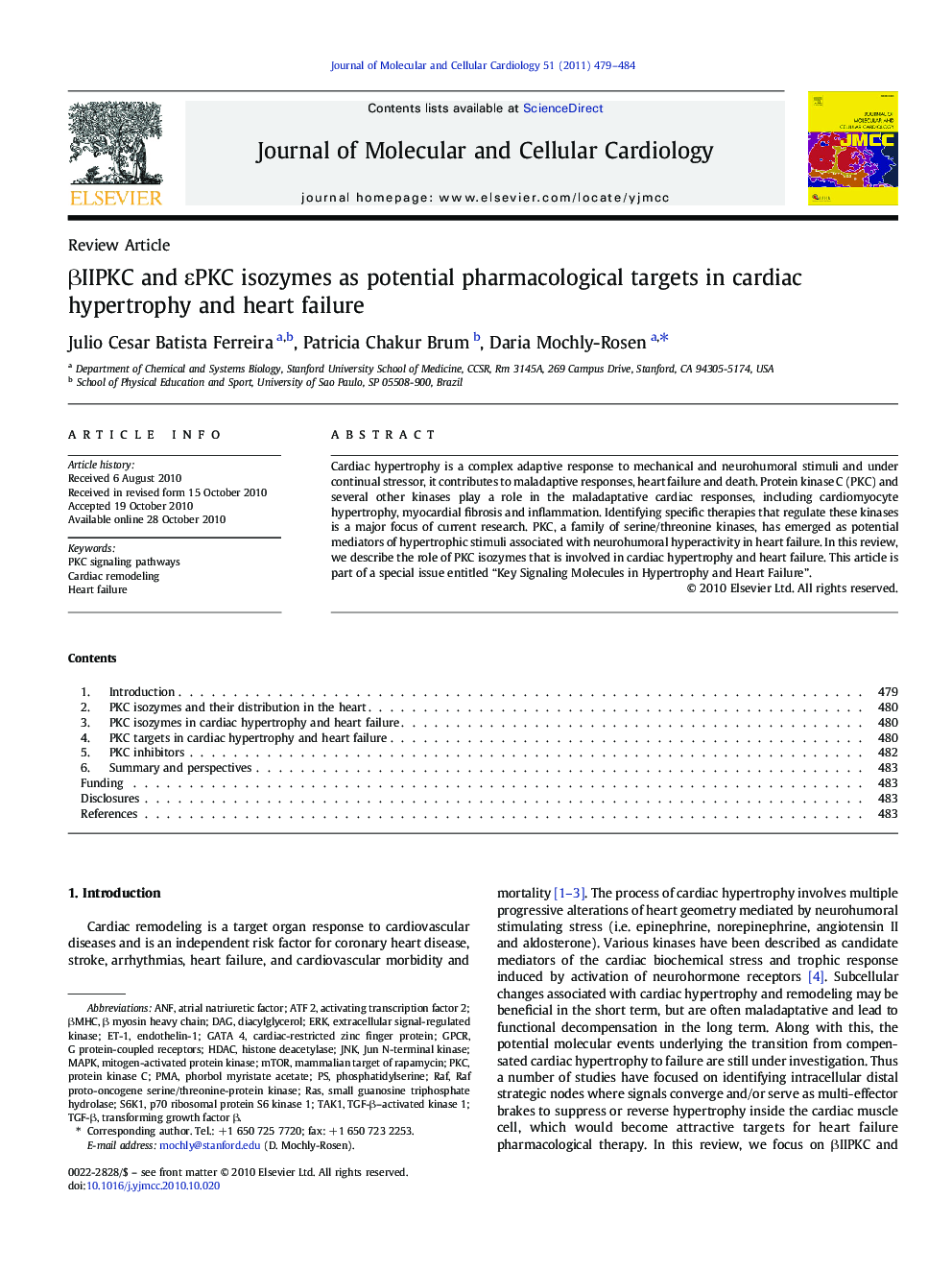| Article ID | Journal | Published Year | Pages | File Type |
|---|---|---|---|---|
| 2190818 | Journal of Molecular and Cellular Cardiology | 2011 | 6 Pages |
Cardiac hypertrophy is a complex adaptive response to mechanical and neurohumoral stimuli and under continual stressor, it contributes to maladaptive responses, heart failure and death. Protein kinase C (PKC) and several other kinases play a role in the maladaptative cardiac responses, including cardiomyocyte hypertrophy, myocardial fibrosis and inflammation. Identifying specific therapies that regulate these kinases is a major focus of current research. PKC, a family of serine/threonine kinases, has emerged as potential mediators of hypertrophic stimuli associated with neurohumoral hyperactivity in heart failure. In this review, we describe the role of PKC isozymes that is involved in cardiac hypertrophy and heart failure. This article is part of a special issue entitled “Key Signaling Molecules in Hypertrophy and Heart Failure”.
Research Highlights► bIIPKC and ePKC are potential intracellular nodes that play critical roles in cardiac hypertrophy and heart failure. ► bIIPKC isozyme is over-activated in human failing heart. ► Selective bIIPKC or ePKC inhibition improves cardiac function and survival in heart failure animal models. ► MAPK, AKT and PKD are PKC downstream targets involved in cardiac hypertrophy and heart failure.
